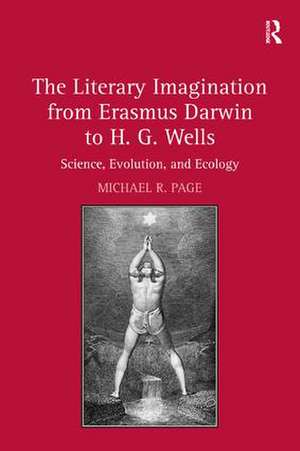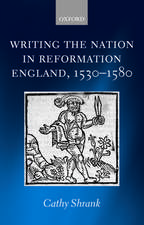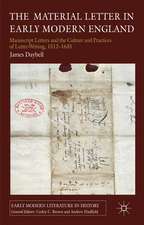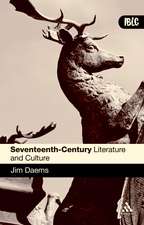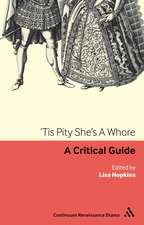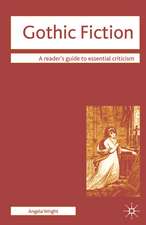The Literary Imagination from Erasmus Darwin to H.G. Wells: Science, Evolution, and Ecology
Autor Michael R. Pageen Limba Engleză Hardback – 28 mar 2012
| Toate formatele și edițiile | Preț | Express |
|---|---|---|
| Paperback (1) | 416.22 lei 6-8 săpt. | |
| Taylor & Francis – 24 mai 2017 | 416.22 lei 6-8 săpt. | |
| Hardback (1) | 1109.18 lei 6-8 săpt. | |
| Taylor & Francis – 28 mar 2012 | 1109.18 lei 6-8 săpt. |
Preț: 1109.18 lei
Preț vechi: 1352.65 lei
-18% Nou
Puncte Express: 1664
Preț estimativ în valută:
212.27€ • 220.79$ • 175.24£
212.27€ • 220.79$ • 175.24£
Carte tipărită la comandă
Livrare economică 12-26 aprilie
Preluare comenzi: 021 569.72.76
Specificații
ISBN-13: 9781409438694
ISBN-10: 1409438694
Pagini: 232
Dimensiuni: 156 x 234 x 14 mm
Greutate: 0.45 kg
Ediția:1
Editura: Taylor & Francis
Colecția Routledge
Locul publicării:Oxford, United Kingdom
ISBN-10: 1409438694
Pagini: 232
Dimensiuni: 156 x 234 x 14 mm
Greutate: 0.45 kg
Ediția:1
Editura: Taylor & Francis
Colecția Routledge
Locul publicării:Oxford, United Kingdom
Cuprins
Contents: Introduction: 'the banner of science': science and the 19th-century British literary imagination; 'Beautiful and sublime images of the operations of nature': Erasmus Darwin; 'Mirrors of the gigantic shadows of futurity': Wordsworth and Shelley; 'A new species': Mary Shelley's science fiction novels; 'A tangled bank': Darwinian science fictions; 'Dim outlines on a desolate beach': H.G. Wells; Conclusion: 'where do we go from here?'; Works cited; Index.
Notă biografică
Michael R. Page is a Lecturer in the English Department at the University of Nebraska-Lincoln. His research focuses on literature's encounter with science and technology in the 19th, 20th, and 21st centuries.
Recenzii
A Yankee Book Peddler Literary Essentials Title for 2013 'Michael R. Page's new book contributes to important literary discussions. By pointing to Mary Shelley's Frankenstein and Darwin's Origin of Species as foundational myths of modern culture, his valuable argument links 19th-century science to imaginative literature and reclaims science fiction as a significant genre.' Ashton Nichols, Walter E. Beach '56 Distinguished Chair in Sustainability Studies at Dickinson College and author of Beyond Romantic Ecocriticism: Toward Urbanatural Roosting (2011) 'It is refreshing to see a broad sweep across periods in an era of narrow specialization, but also across critical frameworks.' English Literature in Transition 1880-1920 '... as a working hypothesis it illuminates characteristic trends of nineteenth-century writing in thought-provoking ways.' Modern Language Review '[This book] is an ambitious project ... [it] is part of an important movement in literary criticism marked by an increased popular and academic interest in and awareness of the ecological and evolutionary consequences of what has come to be called 'the Anthropocene'.' Notes and Queries
Descriere
Page argues that Erasmus Darwin's call to 'enlist the imagination under the banner of science' began a literary narrative on questions of evolution, ecology and technological progress that would extend from the Romantic through the Victorian periods. Examining a range of writers, including William Wordsworth, Mary Shelley, Charles Kingsley, Samuel Butler and W.H. Hudson, Page shows the synthesis of evolutionary science with the imagination, which reached its pinnacle with the romances of H.G. Wells.
